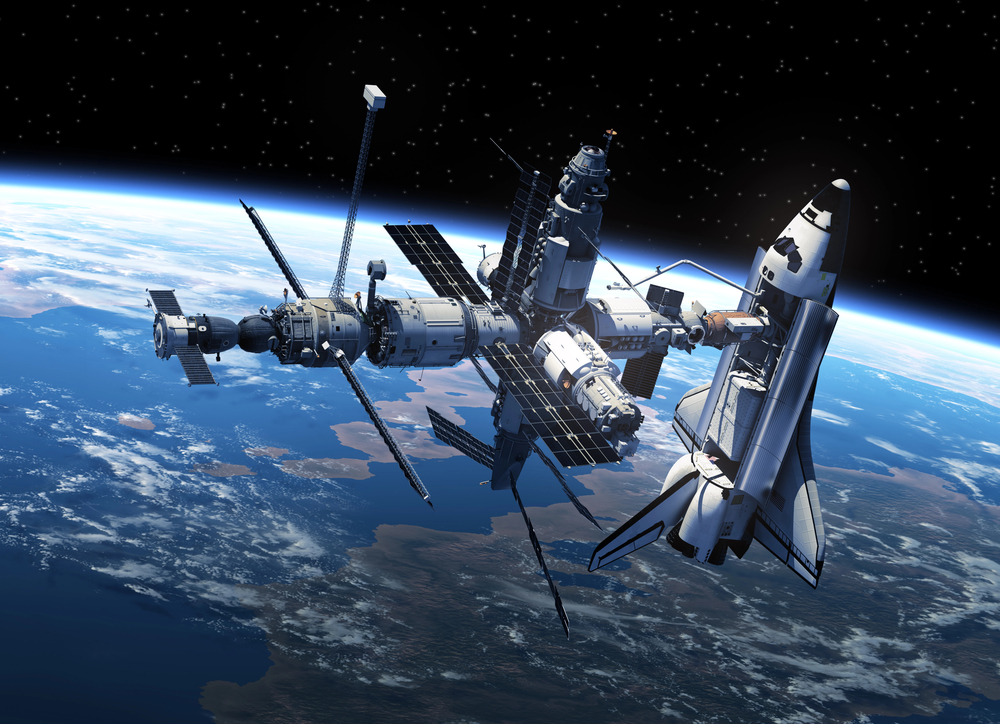Jun25

The space industry is one of the fastest growing industries in the world economy, and Space Tech is the exciting niche providing a constant flow of new technologies to feed it. You don’t get any more cutting-edge than Space Tech, so for investors who are passionate about innovation, it seems to tick all the boxes.
However, any potential investment needs to be assessed while considering the innate complexity and pioneering nature of the niche. Is Space Tech really “the final frontier” of tech investment, and what do you need to consider before climbing aboard the spaceship?
The Soviet Union’s 1957 launch of Sputnik 1, the first artificial Earth satellite, sparked widespread interest in space exploration and triggered the Space Race. Since 1969, when 600 million people across the globe watched Neil Armstrong’s milestone moonwalk, space technology has developed in leaps and bounds.
In more recent years, with SpaceX and the first commercial missions to the International Space Station, a universe of new possibilities has opened up for space industry investors. Data from Space Capital reveals that in the first quarter of 2024 alone, investment in the space economy grew 33% quarter-over-quarter to $6.5 billion across 103 companies.
It’s interesting to note that VC investors were responsible for around half the capital deployed, signalling strong investor confidence, but is it well-placed?
We already rely heavily on space technology on a daily basis - satellite systems for our voice and data communications, and GPS navigation for precise location information. Observation satellites monitor natural resources, air quality and environmental change, and track and predict natural phenomena.
Our reliance on weather-dependent activities like aviation is increasing, so weather forecasting is becoming increasingly important, as is air traffic management. In the agriculture industry, prediction of natural phenomena optimises production and protects profits. Space mission technologies developed for cultivating and preserving food and purifying water have already been deployed for the benefit of millions of people on earth.
Space Tech is already deeply rooted into our daily lives, with immense potential for further development. This combination makes it a promising candidate for investment.
Space Tech presents an investor with a dazzling array of tech domains and companies. Among the top performers, Lockheed Martin is the historic player with a 100-year track record spanning from aircraft to satellites and space technologies. MDA is a Canadian developer specialising in satellite systems, robotics and geo-intelligence. The relatively young Rocket Lab, founded in 2006, manufactures spacecraft and satellite components, and provides launch services and in-orbit management.
All this space activity requires highly specialised support services. Among the pioneers, Orbit Fab is a US startup that aims to introduce the first orbital fuel delivery service of hydrazine, a chemical used by many satellites, while Astroscale focuses on life extension for satellites already in orbit, end-of-life solutions for defunct satellites and the essential clean-up of space debris. AstroForge is a US company pioneering the uncharted territory of asteroid mining – a field that will be vital for life beyond Earth not to mention extremely profitable for those involved.
The space industry is challenges are absolutely unique, and those who develop the solutions will be game-changers and history-makers. Industry growth to date has been hampered by exorbitant costs, so it’s essential to develop more reliable and affordable ways to get cargo into low Earth orbit (LEO).
There is an increasing amount of potentially dangerous debris floating in space that needs to be managed. Few countries have ever actually sent people into orbit, so it will be a major challenge to develop the required infrastructure and training for safe and sustainable human habitation in space.
Space Tech has a significant impact on the technology sector as a whole – particularly on communications and defence, because it is often the point of origin for solutions that are subsequently used outside the space industry itself. This cross-applicability of certain space technologies implies even better potential for returns on well-researched investments.
The potential of Space Tech is vast and, because of the absolute novelty of the sector, can be tricky to quantify. It is growing rapidly, driven by multiple factors including the increasing demand for satellite-based services, the untapped potential of asteroid mining and the development of space tourism. According to a Morgan Stanley report, Space Tech’s market potential should reach $1 trillion by 2040.
This presents a huge opportunity for all tech companies that can offer space-based services for civilian and commercial purposes, while the military sector is also expected to grow rapidly due to increasing global security concerns.
As a priority, the space industry needs to become more affordable, so investors would be well-advised to investigate cost-reducing technologies like reusable spacecraft and versatile small satellites (smallsats) which will be increasingly adopted for IoT and 5G networks.
The smallsats market alone is expected to reach $260 billion by 2029. Other key trends on the rise include robotic automation technology, which enables unmanned vehicles to explore the solar system and is already extensively deployed by the major space agencies, and AI which is being increasingly integrated into space-related activities such as mission design, navigation and data analysis.
The US’s rapid commercialisation of space has transformed the landscape, and although other regions and countries are following suit, they are still in their relative infancy. It is unlikely that China will become an international space tech provider in the West, having become the US’s competitor in the modern space race, and both superpowers are heading for the moon.
Increased industry focus on lunar technology will further shape the Space Tech sector over the next decade, catalysing the development of even more advanced technologies for deep space transportation, lunar resource utilization and colonization which, in turn, means even more future opportunities for investors.
Space exploration and investment have shared characteristics. Both require in-depth research, meticulous analysis, long-term vision and strategy to reach clear goals. By their nature they both entail risk, but also the potential for immense rewards. Will you join the space race?
Keywords: Emerging Technology, Innovation, Startups
 Daily Habits of a Good Supply Chain Planner
Daily Habits of a Good Supply Chain Planner From Forced Labour to Flood Zones: What You Don’t Know About Your Suppliers Can Hurt You
From Forced Labour to Flood Zones: What You Don’t Know About Your Suppliers Can Hurt You Title: Why Change Fails - and What to Do About It?
Title: Why Change Fails - and What to Do About It? Cialdini’s Principles of Persuasion in Customer Loyalty Programs
Cialdini’s Principles of Persuasion in Customer Loyalty Programs Beyond the Framework: The Real Architecture of Ethical AI Governance
Beyond the Framework: The Real Architecture of Ethical AI Governance